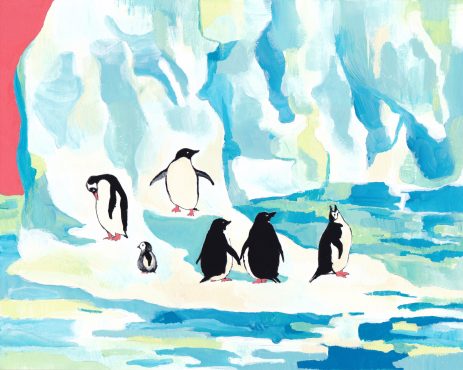Thinking ahead, not beyond
If you’re an active citizen, chances are you’ve had one or two conversations concerning climate change. Considering you’re reading this in a university newspaper, it’s likely that you’ve been engaged in, or even maybe led, these conversations. When discussing climate change, at some point there will inevitably be a drive to talk about ‘solutions.’ After the discussions of doom and gloom have subsided, fear mitigation usually becomes the next priority.
We don’t enjoy talking about uncomfortable things, and we especially do not enjoy taking part in conversations in which we need to take blame. So we do what we can to deflect this responsibility. We pass it onto oil companies (as if we aren’t supporting them by buying vehicles); we pass it onto our governments (as though we weren’t the ones electing them); and, if all else fails, we pass it onto our neighbours, with our holier-than-thou personas kicking in when we see them overwatering their grass or eating meat. Instead of examining our own behaviours, we head to bed believing that ‘I’ am at least doing what ‘I’ can.
I do not believe as a society we are prepared to take the blame for this crisis we have caused. While most of the globe, Donald Trump aside, has accepted climate change as truth and understands that we need to come to an agreement on how to deal with these issues, we are not ready to fully accept the consequences of our actions. In my opinion, this is part of why we are still focused on providing a solution rather than mitigation. I am of the belief that we need to shift our conversations. Rather than continuing to pretend that we can reverse the cycle of environmental destruction, we need to start preparing for a new future.
Life has been on Earth, in some form, for 3.8 billion years, moving its way forward with evolution from single-cell organisms to the forms we see today. This is a fact that I find comfort in while considering the effects of climate change. As our Earth starts to heat up and goes through cycles of change, I find solace in the idea that the Earth has been through its own kind of changes before.

We need to move beyond just thinking about the penguins: what role must humans play in reckoning with climate change? Illustration by Yimeng Bian, Graphics Contributor
I am not trying to discount the tremendous damage we have done. I truly believe that climate change is a serious threat to our political, social and economic systems, and even more of an issue for every other creature on the planet as their habitats are destroyed, food sources are obliterated, and many of them are driven into extinction. And while our intervention is the main difference between the other five mass extinction events the world has seen, it is not without the knowledge that, again, these events have happened before.
I say this not to cut us a break, or relieve the guilt and responsibility of the human population to mitigate these ongoing and intensifying issues. We have the duty of righting our wrongs, as quickly as possible, in order to ensure that other creatures have the chance of survival through the human plight. This is difficult when everyone is still unwilling to take the blame; yet, most would argue that at the very least we are taking steps in the right direction.
Essentially what I’m arguing for is a shift. To stop having conversations that conclude with an overwhelming declaration of the need to fix, stop, or prevent climate change. We are on a train with no way to turn around, but we get to decide where between here and complete destruction the end of the line is.
There are seeds that only germinate or release when they undergo extreme conditions. The term ‘serotiny’ is used to define the ecological adaption where seeds release due to environmental triggers, most commonly studied through cases of fire. While the fire rages and clears out forests and brush, destroying most everything in its path, these seeds get ready to open and push back through once the fire has passed.
In this sense, and in others, life goes on. Climate change brings promises of hotter summers, more intense storms, and strange seasonal differences. But life is pushed once again to innovate and create in these new environments. This innovation will require changes throughout our economic, political, and social systems; influxes of refugees through increased environmental disasters will require our immigration systems to evolve; new ideas surrounding resource developments may also cause a shift in our economic dependency on fossil fuels.
There is no promise that we get to survive the changes we have caused. But we should not be so arrogant to think that without us, the Earth would be lost. I’m uncertain as to what the world is going to look like in six months, one year, five years, or even ten, and I’m hopeful that this uncertainty will guide our conversations; when it does, it’ll push us to think past the boundaries of a ‘solution.’






